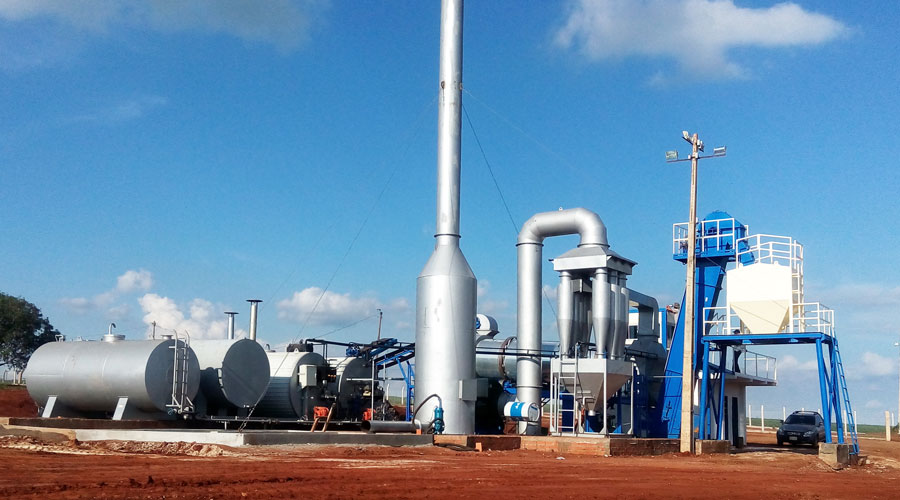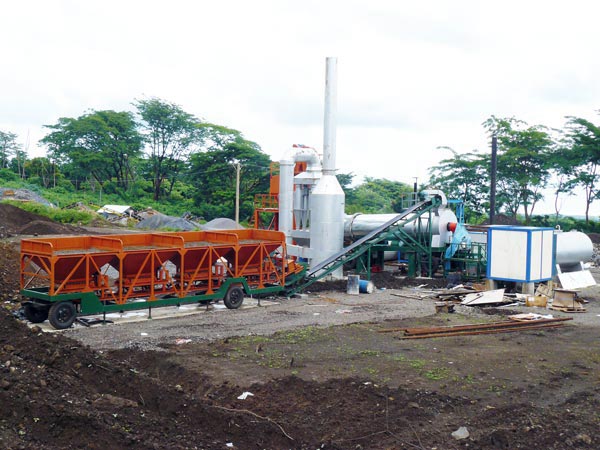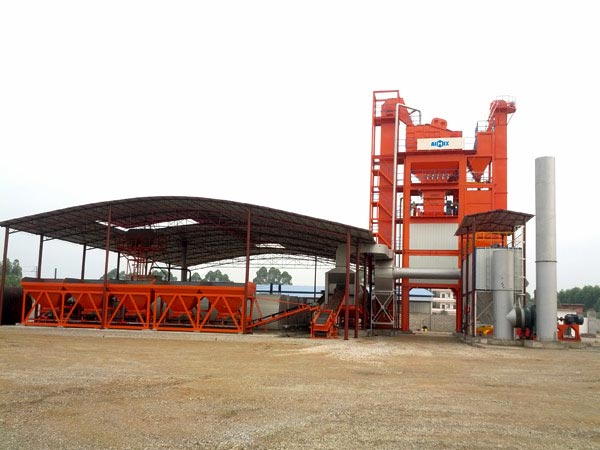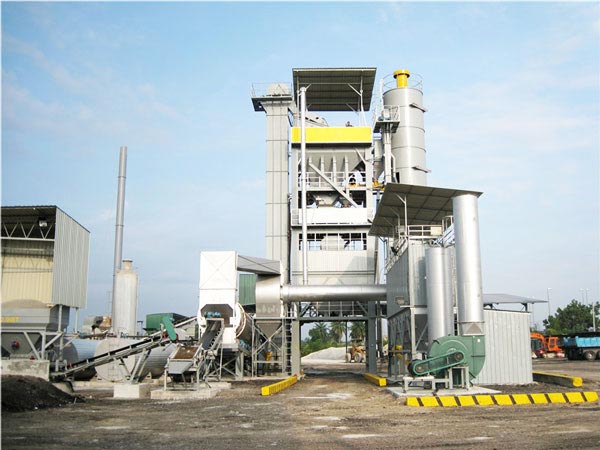Asphalt plants and batch plants are both essential components in the construction industry, but they serve different purposes and operate in distinct ways.
Understanding the key differences between these two types of asphalt mixing plants is crucial for anyone involved in road construction, paving, or related fields.
An asphalt plant, also known as a hot mix plant, is a facility that produces asphalt concrete by heating and mixing aggregates, bitumen, and other additives. This type of plant is typically used for large-scale paving projects such as highways, roads, and airport runways. On the other hand, a batch plant is a smaller-scale operation that produces concrete by mixing aggregates, water, and cement in batches. Batch plants are commonly used for smaller projects like sidewalks, driveways, and foundations.

Production Process
Asphalt Plant Production Process
In an asphalt plant, the production process begins with the heating of aggregates to remove moisture and ensure proper mixing with the bitumen. The heated aggregates are then mixed with bitumen and other additives in a mixer to create the asphalt concrete. The hot mix is then loaded into trucks or other transportation vehicles for delivery to the construction site.
Batch Plant Production Process
In a batch plant, the production process involves measuring and mixing the required amounts of aggregates, water, and cement in a mixer. The ingredients are mixed thoroughly to ensure a homogeneous concrete mix. Once the mix is ready, it is discharged into a truck or other container for transportation to the construction site.

Equipment and Infrastructure
Asphalt Plant Equipment and Infrastructure
Asphalt plants require large-scale equipment such as dryers, mixers, bitumen storage tanks, and loading systems. These plants also need extensive infrastructure including heating systems, ventilation systems, and pollution control devices to ensure safe and efficient operation.
Batch Plant Equipment and Infrastructure
Batch plants, on the other hand, require less complex equipment such as mixers, aggregate bins, cement silos, and water tanks. These plants typically have a smaller footprint and can be set up relatively quickly and easily compared to asphalt batch mix plants.

Cost and Scalability
Asphalt Plant Cost and Scalability
Asphalt plants are generally more expensive to set up and operate due to their larger size and more complex equipment requirements. However, they offer high production capacity and scalability, making them suitable for large-scale projects.
Batch Plant Cost and Scalability
Batch plants are typically more cost-effective to set up and operate due to their smaller size and simpler equipment requirements. They are ideal for smaller projects or when scalability is not a major concern.
In conclusion, asphalt plants and batch plants serve distinct purposes in the construction industry. Asphalt plants are designed for large-scale paving projects and require complex equipment and infrastructure, while batch plants are suitable for smaller projects and offer cost-effective solutions with simpler infrastructure requirements. Understanding these differences is essential for making informed decisions about the type of hot mix asphalt plants that best suits your construction needs.

Environmental Impact
Asphalt Plant Environmental Impact
Asphalt plants can have a significant environmental impact due to their emissions of pollutants such as particulate matter, sulfur dioxide, and nitrogen oxides. These emissions can contribute to air pollution and have negative impacts on human health and the environment. However, modern asphalt plants are equipped with advanced pollution control devices that significantly reduce these emissions.
Batch Plant Environmental Impact
Batch plants also have an environmental impact, but it is generally less significant than that of drum mix plants. This is because batch plants typically have lower emissions of pollutants due to their smaller size and simpler operations. Additionally, many batch plants use recycled materials, which can help reduce the environmental impact of concrete production.
Conclusion
Asphalt plants and batch plants are both important components of the construction industry, but they differ in terms of production process, road machinery and infrastructure requirements, cost and scalability, and environmental impact. Choosing the right type of plant for your construction project depends on various factors such as project scale, budget, and environmental considerations.